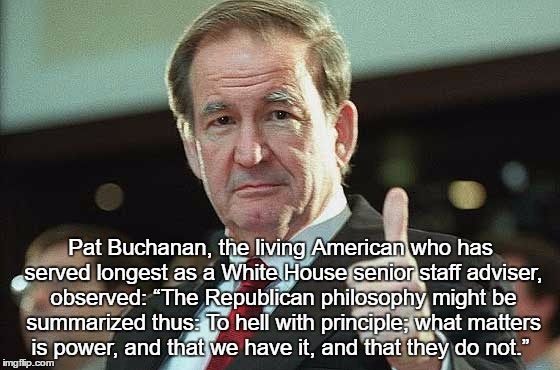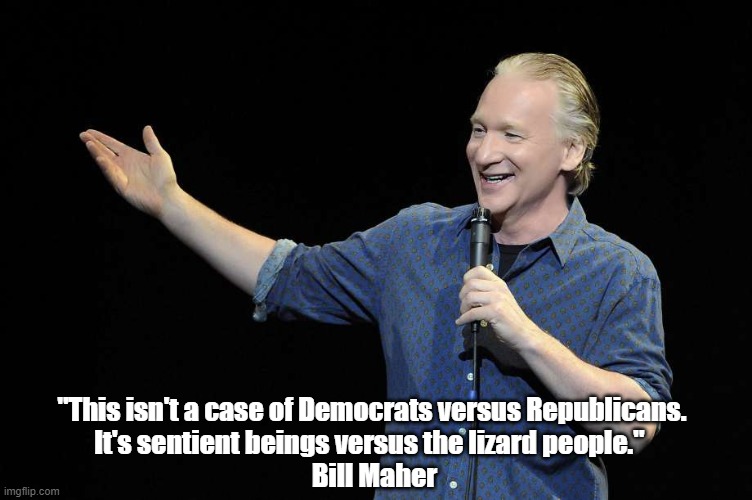
"Righteous Mind" Quotes
Alan: The following "review" of Jonathan Haidt's book, "The Coddling Of The American Mind," was written by an American neurologist friend who lives in Canada.
But first a few comments about Haidt and his work.
But first a few comments about Haidt and his work.
Despite many insights, Haidt is somewhat (if not ultimately) disappointing because he does not look at ideological-moralistic differences through the lens of insight: the fact that conservatives tend to be visceral and non-reflective preempts insight whereas a significant minority of liberals operate from the core, conscious insight that my motivating beliefs ARE beliefs and not articles of knowledge.
Considerable light is shed by the century old transformation of American Christianity from a belief system -- an act of faith -- to a series of proclamations, pretending to be statements of fact, starting with "God said it. I believe it. That settles it."
Although Haidt does a superb job describing the irresolvable differences between "the political left" and "the political right," his attempt to put contemporary conservatism on an equal footing with contemporary liberalism undervalues the decisive importance of Reason while dismissing altogether the rise of Hitler in the 1930s and the reprise of that rise under Donald Trump.
Although Haidt does a superb job describing the irresolvable differences between "the political left" and "the political right," his attempt to put contemporary conservatism on an equal footing with contemporary liberalism undervalues the decisive importance of Reason while dismissing altogether the rise of Hitler in the 1930s and the reprise of that rise under Donald Trump.
“Anyone who values truth should stop worshipping reason.”
The Righteous Mind: Why Good People Are Divided by Politics and Religion"
The Righteous Mind: Why Good People Are Divided by Politics and Religion"
Book: (Greg Lukianoff and Jonathan Haidt) The Coddling of the American Mind: How Good Intentions and Bad Ideas Are Setting Up a Generation for Failure (2018)
A survey of both very liberal and very conservative college students in 2017 revealed that 58% of the students overall supported the view that “it is important to be part of a campus community where I am not exposed to intolerant and offensive ideas.” Of the liberal students, 63% agreed with the statement, while 45% of conservative students agreed with it. The statement, of course, is at odds with the view that education should make students think rather than making them comfortable. Protecting people from ideas and experiences that make them uncomfortable means restricting freedom of speech and undermining the emotional maturity of those who are protected in this way. It’s an old problem. The Athenian authorities forced Socrates to drink hemlock and die because he had been a “gadfly,” stirring up the youth of Athens to think for themselves.
The authors write: “Whatever your identity, background, or political ideology, you will be happier, healthier, stronger, and more likely to succeed in pursuing your own goals …[by] seeking out challenges (rather than eliminating or avoiding everything that ‘feels unsafe’), freeing yourself from cognitive distortions (rather than always trusting your initial feelings), and taking a generous view of other people, and looking for nuance (rather than assuming the worst about people within a simplistic us-versus-them morality).” (Alan: In general, I understand the advisability of taking a "generous view." But there are times such Hitler's rise in the 30s and Trump's Electoral College "coup" in 2016 when it is dangerous and culturally suicidal to be "generous" to people who have taken leave of their senses, people who are manifestly "unsafe" when it comes to such fundaments as The Common Good, The General Welfare and The Social Contract. It is important to keep an open mind, but not so open that our brains fall out.)
Children who are not exposed to peanuts early are more likely to develop peanut allergy later in childhood, because early exposure enables them to develop immunity. This example is used by the authors to illustrate the general principle that we become stronger by having to cope with difficulties.
Chapter 2, “The Untruth of Emotional Reasoning: Always Trust Your Feelings,” is about why it is actually a bad idea to “always trust your feelings.” The chapter opens with this quotation from Epictetus: “What really frightens and dismays us is not external events themselves, but the way in which we think about them. It is not things that disturb us, but our interpretation of their significance.” While emphasizing the importance of countering racism, for example, it also emphasizes the dangers of conflating intention and impact. We should oppose (and transcend) intentional racism (Ku Klux Klan rallies, screaming racist insults, etc.). Otherwise, exposure to the great diversity of people with all their faults, including the deeply ingrained tribalism that can probably be found in every human being, is a good thing. It is also a good thing to listen to adversarial ideas, such as someone who thinks that a lot of well-intentioned “anti-racism” is in fact detrimental to the very people it is intended to help.
By avoiding people with ideas different from your own, you might feel more comfortable. By exposing yourself to such ideas, however, and by considering them carefully, you gain wisdom and resilience. You overcome your tendency to “emotional thinking” and learn to control your emotions. The emotional part of our brain and the intellectual part have a relationship like that of an elephant and a person riding the elephant. If we are ruled by emotional thinking, we are placing our ability to cope with all sorts of things in jeopardy. Cognitive behavioral therapy is designed to enhance our ability to cope with our emotions. That way, this elephant we are riding is less likely to ruin our lives.
Part II of the book, chapters 4 and 5, is entitled “Bad ideas in Action” and begins with this quote from Nelson Mandela: “When we dehumanise and demonise our opponents, we abandon the possibility of peacefully resolving our differences, and seek to justify violence against them.” In 2017, just days after the inauguration of Donald Trump, the Berkley campus at the University of California became violent in response to a visit from “Milo Yiannopoulos, a young, British, gay Trump supporter” who was scheduled to speak. He was a provocateur, a self-described “troll” – “a master of the art of triggering outrage and then using that outrage to embarrass his opponents and advance his goals.” The violence included property damage and physical attacks on students and others who attempted to attend the speech. The authors of the book see the event as a “turning point – an escalation of conflicts over campus speakers. Berkeley and its aftermath were the start of a new and more dangerous era. Since then, many students on the left have become increasingly receptive to the idea that violence is sometimes justified as a response to speech they believe is ‘hateful.’”
A few months later, “the most shocking event of all occurred in Charlottesville, Virginia. On the night of August 11, 2017, members of the self-described alt-right, including many neo-Nazis and Ku Klux Klansmen, marched across the fabled grounds of the University of Virginia, carrying Tiki torches and chanting neo-Nazi and white supremacist slogans, including ‘Jews will not replace us.’ If you are looking for examples of common-enemy identity politics, it doesn’t get any clearer than this.” The next day the mob went to the city carrying swastika flags and it was on that day, August 12, 2017, that “a white supremacist who idolized Adolf Hitler stopped his car in front of a group of counter-protesters, backed up, and then sped forward, slamming into them,” injuring many and killing 32-year-old Heather Heyer,“a paralegal described by friends as ‘a passionate advocate for the disenfranchised who was often moved to tears by the world’s injustices.’”
The authors quote Van Jones, who had been an advisor to Barack Obama, when Jones was asked how progressive students should respond when speakers they find ideologically offensive are invited to speak on campus. Distinguishing between physical safety on campus (a good thing) from “ideological safety,” which Jones considers a bad thing, he said: “I don’t want you to be safe ideologically, I don’t want you to be safe emotionally. I want you to be strong.”
Part III of the book, “How Did We Get Here?” includes chapters such as “Anxiety and Depression,” “Paranoid Parenting, and “The Bureaucracy of Safetyism.” Part IV, “Wising Up,” includes “Wiser Kids” (Chapter 12), “Wiser Universities” (Chapter 13), and “Wiser Societies” (Conclusion). For wiser kids, the authors provide such advice as allowing children more unstructured time to play and to interact with other children and limiting the length of homework assignments. You can help children learn cognitive behavioral therapy basics by expressing emotional thinking aloud in the voice of a cartoon character like Daffy Duck, then responding wisely to those anxious emotional thoughts.
The Conclusion summarizes things in a simple table with three “psychological principles” and for each of those three, a corresponding bit of wisdom; and the “Great Untruth” that must be transcended to gain that wisdom. The first psychological principle is that young people are potentially very resilient (or “antifragile” as they call it). The corresponding wisdom is to encourage the growth of that resilience: “Prepare the child for the road, not the road for the child.” The Untruth that must be overcome is essentially about overprotection: “What doesn’t kill you makes you weaker.” The second psychological principle is that “we are all prone to emotional reasoning…” and the wisdom comes as a quote from Buddha: “Your worst enemy cannot harm you as much as your own thoughts, unguarded. But once mastered, no one can help you as much, not even your father or your mother.” The corresponding Untruth is: “Always trust your feelings.” The third psychological principle is that we are all prone to [Us Versus Them] thinking and tribalism. The corresponding wisdom is a quote from Alexander Solzhenitsyn: “The line dividing good and evil cuts through the heart of every human being.” We are all capable of “evil” and we need to become much keener detectives of the errors of our own ways.
Optimal human psychological development can lead to a “spiritual consciousness,” usually in old age, in which everything that happens is seen as an opportunity for spiritual growth. However, that optimal development requires exposure to many things that make us uncomfortable. We cannot achieve this resilience and wisdom by sheltering children and young adults from adversity; on the contrary we should encourage exposure to diverse cultures and unfamiliar ideas.

Alan: Notably, we now live in a time when liberals strive for order, while "conservatives" promote chaos.
They promote chaos to rescue their recently corrupted philosophy, a philosophy based on contempt for - and frequent cruelty to -"others."
Only by rehabilitating their morally bankrupt philosophy can conservative candidates keep political power over those "others."
And it is only prolongation of political power that enables the punitive, authoritarian measures that their political philosophy demands.
These measures frequently distill to isolation, whether mass incarceration, promotion of race-based divisiveness, Trump's Wall, concentration camps along the border, the horror of Family Separation, and the public shaming of intellectuals and inter-related contempt for the so-called "Deep State" (which basically means, career government employees who actually know how to accomplish important goals in their area of expertise).
They promote chaos to rescue their recently corrupted philosophy, a philosophy based on contempt for - and frequent cruelty to -"others."
Only by rehabilitating their morally bankrupt philosophy can conservative candidates keep political power over those "others."
And it is only prolongation of political power that enables the punitive, authoritarian measures that their political philosophy demands.
These measures frequently distill to isolation, whether mass incarceration, promotion of race-based divisiveness, Trump's Wall, concentration camps along the border, the horror of Family Separation, and the public shaming of intellectuals and inter-related contempt for the so-called "Deep State" (which basically means, career government employees who actually know how to accomplish important goals in their area of expertise).
Lionel Giles' translation of the Tao Te Ching provides this translation of Lao Tzu's aphorism: "Only those who are conservative can afford to be liberal."
Lamentably, contemporary "conservatives" have no appreciation for paradox and irony, instead, fixating on "common sense."
And so, on the right side of the aisle there is no understanding of quirky-but-crucial "interaction" between conservatism and liberalism.
Instead, we have the quintessential selfishness of conservatives wanting it all for themselves, preferably accompanied by the un-revivable destruction of liberalism.




No comments:
Post a Comment